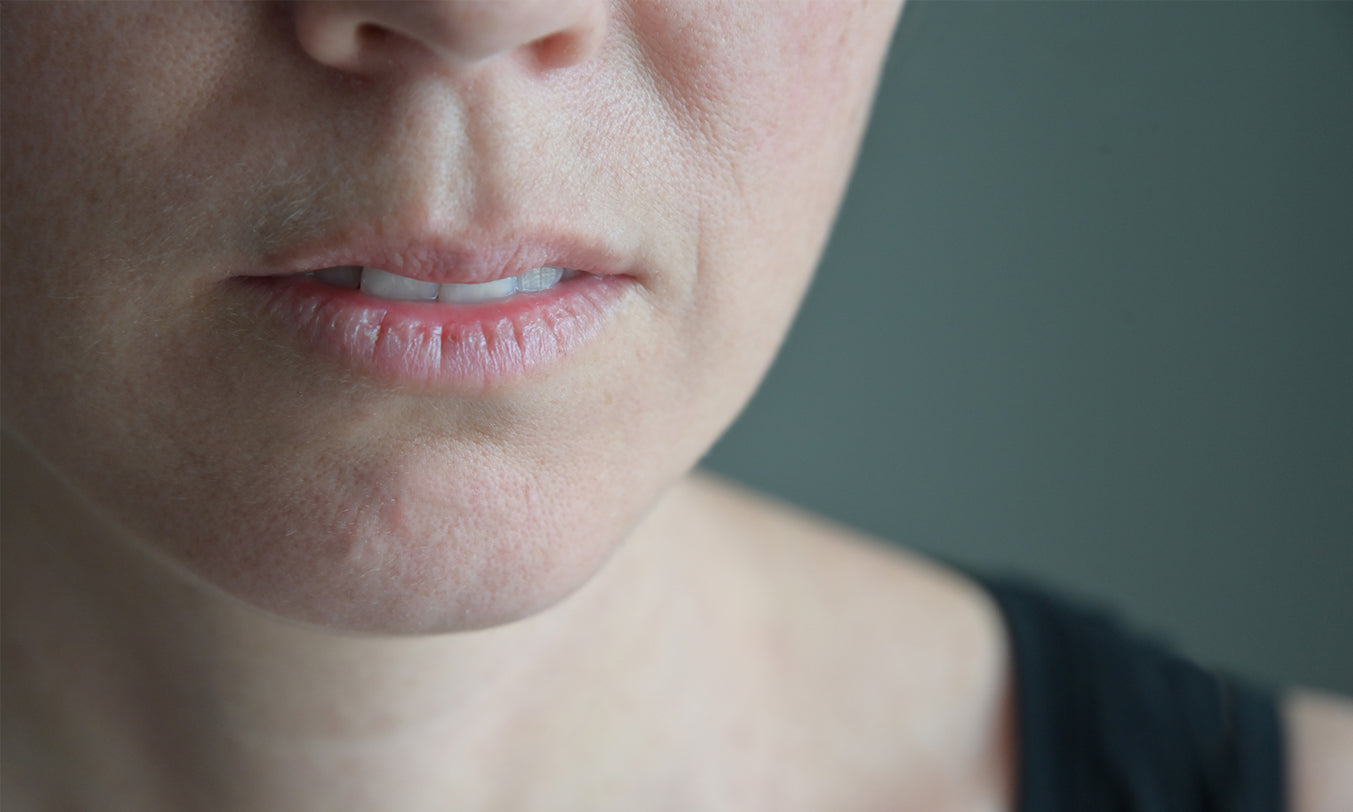口干的原因?
加湿器如何帮助缓解口干?
Bring fresh and clean vapor into your life. Up to 20% off | Shop now

加湿器如何帮助缓解口干?
As pet owners, we often seek natural remedies to enhance the well-being of our beloved furry friends. Essential oils have gained popularity in recent years for their potential therapeutic benefits, but are they safe for our pets? In this comprehensive guide, we'll explore the dos and don'ts of using essential oils around cats and dogs, along with a curated list of pet-friendly oils and those to avoid.Please note: The APVMA regulate veterinary medicines in Australia, the following information is written using the APVMA guidelines. Understanding Pet Sensitivity Before delving into the world of essential oils for pets, it's crucial to grasp the differences in sensitivity between cats, dogs, and humans. Cats, in particular, possess a unique physiology that makes them more susceptible to adverse reactions from essential oils. Unlike dogs and humans, cats lack a specific liver enzyme responsible for metabolizing certain compounds found in essential oils. As a result, even small amounts of exposure to certain oils can lead to toxicity and health complications in felines. This is the safest way to introduce essential oils to pets, as it allows them to control their exposure by leaving the room if they find the scent too strong. On the other hand, while dogs are generally less sensitive to essential oils than cats, they can still experience adverse reactions if exposed to high concentrations or inappropriate oils. Therefore, it's necessary to exercise caution and consult with your veterinarian before introducing any new essential oil to your pet's environment. Safe Application Methods When using essential oils around pets, the key is moderation and mindful application. Here are some safe methods for incorporating essential oils into your pet's routine: Diffusion: Diffusing essential oils in a well-ventilated area is one of the safest ways to introduce scents to your pets. Start with a few drops of pet-friendly oil such as Lavender Essential Oil in a diffuser and allow your pet to acclimate to the scent. Monitor their behavior, and if they show any signs of discomfort, remove them from the area. If your pet is uncomforable with the scent then they will generally remove themselves from the area, this is a good indication to stop using this essential oil and refrain from using again around your pet. Bandana or Scarf: Another gentle way to introduce essential oils to your pet is by applying them to a bandana or scarf. Simply add a few drops of pet-friendly oil such as Frankincense Pure Essential Oil to the fabric and allow your pet to wear it gradually. This method allows for controlled exposure and gives your pet the option to remove themselves from the scent if it becomes overwhelming. Topical Application: When applying essential oils topically to pets, it's crucial to dilute them properly in a carrier oil to avoid skin irritation or sensitization. Mix a few drops of pet-friendly essential oil with a tablespoon of carrier oil such as coconut, jojoba, or sweet almond oil. Gently massage the diluted mixture onto your pet's skin or fur, avoiding sensitive areas like the eyes, nose, and mouth. When in doubt, it's always best to consult with your veterinarian before using any essential oil around your pets. Pet-Friendly Essential Oil Blends We've done the hard work for you! Three curated Essential Oil Blends developed in line with APVMA guidelines launching in March 2025. Sign up below to be notified first. Pet-Friendly Essential Oils Not all essential oils are safe for pets. Here's a list of pet-friendly oils that can be used safely around cats and dogs: Lavender (Diffusion, Topical) Chamomile (Diffusion, Topical) Frankincense (Diffusion, Topical) Copaiba (Diffusion, Topical) Cedarwood (Diffusion, Topical) Ylang-ylang (Diffusion in small amounts) Bergamot (Diffusion. insmall amounts) Clary Sage (Diffusion, Topical) Chamomile (Diffusion, Topical) Helichrysum (Diffusion, Topical) Sandalwood (Diffusion, Topical) Vetiver (Diffusion, Topical) Shop Pet Safe Oils Essential Oils to Avoid Certain essential oils can be toxic to cats and dogs and should be avoided entirely. Here's a list of oils to steer clear of: Geranium (Harmful to Cats) Jasmine (Harmful to Cats) Rose (Harmful to Cats) Tea Tree Oil (Harmful to Dogs and Cats) Peppermint Oil (Harmful to Dogs and Cats) Wintergreen Oil (Harmful to Dogs and Cats) Pine Oil (Harmful to Dogs and Cats) Citrus Oils (d-limonene) (Harmful to Dogs and Cats) Cinnamon Oil (Harmful to Dogs and Cats) Clove Oil (Harmful to Dogs and Cats) Eucalyptus Oil (Harmful to Dogs and Cats) Oregano Oil (Harmful to Dogs and Cats) Thyme Oil (Harmful to Dogs and Cats) Anise Oil (Harmful to Dogs and Cats) Basil Oil (Harmful to Dogs and Cats) While essential oils can offer potential benefits for pets, it's crucial to approach their use with caution and respect for your pet's individual sensitivities. Stick to pet-friendly oils and safe application methods, and always monitor your pet for any adverse reactions. When used responsibly, essential oils can be a valuable addition to your pet's wellness routine, enhancing their environment and promoting their overall health and happiness. When in doubt, it's always best to consult with your veterinarian before using any essential oil around your pets. All information provided in this article is a general guide, specific information relating to your pet can be obtained by your veterinarian.
Explore NowDiffusing essential oils in your home can create a relaxing and calming atmosphere. Our sense of smell is extremely powerful, so it’s no wonder diffusers have become so popular. Even the faintest scent can create a physical or emotional response, just like how the smell of freshly baked bread can bring back childhood memories, or how the smell of a perfume can remind you of someone you used to know… Diffusers help spread the lovely aroma of essential oils around your home. But are oil diffusers safe for your lungs? It all depends on how you use them, so let us help break it down for you! Using Essential Oils in Your Oil Diffuser What are essential oils? Essential oils are different from synthetic perfumes and fragrances because they are completely natural. Essential oils are highly concentrated liquids extracted from plants or resins. They are very potent, so a little goes a long way. But how do you use them safely? Here are a few key safety points to remember: As a general rule, ingesting essential oils is not safe. Using essential oils topically on your skin may be fine, but the essential oil has to be diluted with a carrier oil first. Diffusing essential oils is a great way to enjoy the benefits of aromatherapy, and it is safe for most people. Because a diffuser spreads the fine particles of the essential oil into the air, it is a great way to safely enjoy the benefits of essential oils. Are Oil Diffusers Good for Your Lungs? Essential oils have been used for centuries in traditional practices like Ayurveda or Chinese medicine. Traditionally, essential oils, herbs and plants have been used in steam inhalation, saunas, warm baths and massages. People have been aware of the benefits of aromatherapy for thousands of years. But it’s not until recently that there have been scientific studies on the effectiveness and benefits of aromatherapy. Although this is quite a new field of study, there are a few studies that investigate the benefits of diffusing essential oils for the respiratory system.Here are some of the most popular oils that have been studied for their health benefits! Eucalyptus Eucalyptus is a calming aroma that has an airy and fresh scent. Eucalyptus blends well with citrusy scents like grapefruit or lemongrass for an uplifting and energising blend. It also works great on its own and it’s often used in spas to create a calming atmosphere.Eucalyptus essential oil is a common treatment for symptoms of the common cold such as coughing or a stuffy nose. Studies show that Eucalyptus may be a safe and effective way to treat certain respiratory symptoms.Try diffusing Eucalyptus essential oil to reduce the symptoms of a winter cold! Frankincense Frankincense has been used for centuries in religious and spiritual ceremonies. Used to create a sense of peace and relaxation, frankincense has a warm and spicy aroma that can be described as clean or fresh.Traditionally (before there were diffusers), frankincense was used in steam inhalation, baths and massages to treat respiratory issues. The boswellic acids found in frankincense have been shown to reduce and prevent inflammation in chronic inflammatory diseases like asthma, with no reported severe side effects.Try diffusing this oil blend for a refreshing aroma to support clear breathing!3 drops Frankincense2 drops Eucalyptus1 drop Rosemary1 drop Spruce Sweet Orange The soft fragrance of citrus is uplifting and energising, and sweet orange is both sweet and fresh. If you love citrus, then sweet orange essential oil will make your home smell like a citrus haven. Imagine the scent of freshly picked oranges to wake you up in the morning!Sweet orange essential oil has been used in studies to treat anxiety, and the results have been quite promising. In one study, diffusing sweet orange essential oil appeared to have an anxiety-reducing effect that also made the participants feel more energetic.Use sweet orange essential oil to make a citrus blend that awakens your spirit and invigorates your senses!4 drops Sweet Orange3 drops Bergamot2 drops Frankincense How to Safely Use Essential Oils To ensure you are using your oil diffuser in a way that’s safe for your lungs, here are a few things to keep in mind: Start slowly by using less oil than recommended to see how your body reacts. Keep a window open to maintain a healthy airflow. Try different oils to find the ones that work best for you. Start with a lighter oil, like sweet orange or lemon for example, and then start to incorporate more essential oils once you feel more confident. Learn about essential oils. Educate yourself on how different essential oils work to make sure you have the knowledge you need to safely diffuse essential oils in your home. Talk to your doctor before you start using a diffuser if you’re pregnant or if you have any medical conditions. If you notice an allergic reaction such as coughing or sneezing, stop diffusing essential oils and consult your doctor. If you have pets, you can read more here about how to diffuse essential oils safely around your pet. And if you have young children, you can read more about the safety of diffusing essential oils here. But What About Side Effects? Aromatherapy has many benefits. Diffusing essential oils can help calm or energise you and create a wonderful atmosphere in your home. Every essential oil has different benefits and uses. But are oil diffusers bad for your lungs?Most of the adverse effects reported in the studies on aromatherapy were from skin irritation due to essential oils having been applied topically (to the skin) and also consumed (which we don’t recommend). So most of the side effects that were reported were the consequence of the essential oils not being used properly! It is easy to forget how potent essential oils are! Since they are 100% natural and pure, they are much more concentrated than perfumes or other synthetic fragrances. That is why it is recommended that you use them with caution and respect.Essential oils can be as potent as medicine, and should be treated as such! Allergic Reactions to Essential Oils Even though your oil diffuser is safe and even beneficial for your lungs, you might have an allergic reaction to the oils diffused. One side effect that can happen from using essential oils in general is allergy symptoms.If you are concerned about the safety of using essential oils, look out for signs of an allergic reaction. If diffusing essential oils causes your eyes to water or itch, or if you get a runny nose, start sneezing, or become congested, these may be signs that you’re having an allergic reaction to the essential oils you’re using. If you think you might be having an allergic reaction from diffusing essential oils, stop using the product and consult your doctor.Essential oils work in a similar way to the plants they are extracted from. For example, chamomile essential oil can help you calm down and relax, but if you’re allergic to similar plants like ragweed and daisies, you might also be allergic to chamomile. You can also be allergic to different types of extracts, so it’s important to figure out which essential oils trigger a reaction and which are safe for you to use. The best way to find this out is by consulting your doctor. Natural vs. Synthetic Fragrances The benefits of using an oil diffuser come from the essential oils. Aromatherapy can have many benefits, but it’s important to know the difference between natural and synthetic fragrances.The reason essential oils have so many benefits is that they are completely natural and extracted directly from plants, flowers, and resins. Just like the herb rosemary has many benefits when consumed, rosemary essential oil has similar qualities and benefits when diffused.You can use pure essential oils with most diffusers on the market. But some oil diffusers use special cartridges or scents instead of essential oils. Using these types of diffusers can be bad for your lungs because the fragrances often contain harmful chemicals and perfumes. When choosing a fragrance for your diffuser, always make sure to check the ingredient list. There should only be the name of one or more essential oils, and no numbers or names of any chemical compounds. These can be harmful when diffused, and they don’t contribute to a healthy indoor air quality. Start Experiencing the Benefits of Aromatherapy Today! There is so much to learn about essential oils and their benefits, but it’s always good to know how to use them safely. Oil diffusers are safe for the lungs and, when used correctly, they have many benefits! If you want to learn more about the benefits of aromatherapy and hear what the experts have to say, you can continue reading here. And if you’re ready to start experiencing the healing benefits of aromatherapy, you’ve got some good tools under your belt regarding the safety of using an oil diffuser.
Explore NowFor many of us, the peace and comfort atmosphere while at home is an absolute necessity in today's fast-paced society. Be it a means of unwinding after a long day or only setting the mood for being mindful, it requires the proper atmosphere. Two common solutions for establishing the right environment are through scented diffusers and candles. Though both are famous for establishing lovely aromas that brighten people's moods, it remains unclear which one is healthier. Let's have a better look at the dangers and health benefits of candles and a fragrance machine in Dubai like an aroma diffuser to determine which one is better suited for your wellness journey. Information unfolding throughout this article on the topic 'Aroma Diffusers vs. Candles: Which One is Better for Your Health?' will be an eye opener for your doubts on these products. The Magic of the Candle For many years, candles have represented cosiness, romance, and even rest. From the very beginning of time, people have used candles for lighting, rituals, and play. Nowadays, scented candles are a staple feature of most homes, as they create an easy, fast way to perfume a space. Mainly, candles are made of wax with artificial or genuine oils being used for fragrances. Most candles usually are made of paraffin-the byproduct of petroleum. Whenever lit, the fragrance from the candle wafts in the air, giving off a sweet smell that spreads so fast. People love to relax when there is that layer of warmth from the flickering flame. Candles may look nice in the setting, but their health impact is not so lyrical. When paraffin wax candles are on, they release harmful chemicals like toluene and benzene. That has been known to cause respiratory problems and worse health effects in the long run. Besides, phthalates, which have been responsible for a host of chronic conditions, are among the chemical fragrances applied in many cheap candles. Phthalates disrupt the human body's hormonal balance. Lighting a candle might be more hazardous to those who have asthma, allergies, or chemical sensitivities. Soot created from candles doesn't only lower the air quality indoors but also irritates your lungs. Even with "cleaner" alternatives like soy or beeswax candles, some soot and particle matter are emitted, though selecting them will minimize exposure to harmful substances. Aroma Diffusers On the other hand, aroma diffusers are highly becoming a healthier alternative to candles. These devices are safer for homes with small children and pets, as they do not use any fire or open flames to release the essential oils into the air. The most common ones are ultrasonic diffusers, which generate a thin mist of essential oils through water and electrical frequencies. One good feature of aroma diffusers is their ability to be used with 100% pure essential oils obtained directly from plants. Essential oils are naturally chemical compounds and, therefore, therapeutically active, whereas manufactured perfumes are man-made. In other words, peppermint helps to recharge energy levels, and lavender oil is very famous for its sedative properties. These are a fresh alternative to promoting well-being without air quality being compromised. Aroma diffusers are far healthier than candles in many ways. They actually purify the air by using negative ions rather than harmful pollutants or particulates. Second, as people know, essential oils are broadly antibacterial; this could cut down on the variety of allergens and microorganisms that end up airborne. These benefits aside, since essential oils are so strong, caution must be exercised when using them. Over time or foolishly-an application without proper dilution-can be harsh on the respiratory system or skin. Some people are also more sensitive to certain oils; therefore, introduce essential oils into your practice by using moderate quantities and listening to your body. Aware of What You Inhale Another significant difference between them is the way in which candles and diffusers impact the chemical content of indoor air. As it was well proven, candles transfer VOCs into the atmosphere from paraffin wax and other materials that compose them. Such VOCs as acrolein and formaldehyde irritate the respiratory system and provoke headaches and dizziness. Long exposure to such substances proved to be followed by more hazardous diseases, including cancer and asthma. On the other hand, since diffusers do not have to burn, they are not generating VOCs or volatile organic compounds that could directly contaminate the air in rooms. For that reason alone, diffusers are a safer option for anyone who wants the best benefits of aromatherapy without exposure to contaminants. Safety Issues and Fire Hazards Safety is another consideration when deciding between using diffusers and candles. Candles are a fire hazard because they contain flames visible to the naked eye. According to reports, candles are the cause of about 18,000 fires annually, leading to horrific property devastation or even death. If there are children or pets in the home, then the danger of a household accident like an accidental fire is much higher. As aroma diffusers do not require an open flame to come into action, they pose far fewer safety hazards. Health Advantages Most importantly, while essential oils in diffusers foster therapeutic benefits for physical and mental well-being, they cannot be overstated. While candles use artificial scents, diffusers utilize scientifically proven essential oils to enhance feelings of relaxation, and concentration, even helping to lower pain. Aroma and mental health are interconnected because aromatherapy operates through the limbic system of the brain - that part that regulates your emotions and memories. Candle or Diffuser? Candles and fragrance diffusers like the aroma diffuser Dubai has to offer are both lovely, but there is no question of which is healthier for you. Aroma diffusers are a non-toxic way to enhance your physical and emotional well-being, and they are environmentally friendly and flexible. They have the added benefit of therapeutic-grade essential oils and are not contributors to indoor air pollution. Candles give the feeling of warmth and closeness to a room; however, they are not particularly healthy for people sitting inside, especially those suffering from respiratory problems.
Explore Now
We offer free shipping with ground delivery to the lower 48 states.

Available 24 hours a day, 7 days a week to serve you.

Exchange or return items free of charge within 30 days.

Pay conveniently using multiple credit cards for added flexibility.